The Chair in Science and Society of the Rafael del Pino Foundation prepares the report Ten technologies to boost Spain. Under the supervision of Professor Javier García Martínez, the Chair's team drafts an annual document that identifies the ten emerging technologies that offer a competitive advantage to the Spanish economy and society.

The report Ten technologies to boost Spainis an analysis and foresight work led by the Rafael del Pino Foundation professor Javier García Martínez. The team that produces it is made up of Fernando Gomollón Bell y Eugenio Mallolwith editorial coordination by Jordi Sánchez Navas. It is supported by a committee of experts composed of 14 leading figures in science and technology, who contribute their experience and expertise in various fields.
This report on ten technologies to give Spain a competitive edge does not seek to disseminate the latest and most striking innovations in the field of research, but rather to recognise those science and technology-based initiatives that are in the process of being incorporated into economic activity, by connecting their innovative nature with a high degree of maturity in their development and application.
They are currently members of the Committee of Experts:
María José Alonso Fernández. Editor-in-Chief of the journal Drug Delivery and Translational Research (DDTR). Former President of the Controlled Release Society (CRS). Principal Investigator, CIMUS Research Institute, University of Santiago de Compostela (USC). Professor of Pharmacy and Pharmaceutical Technology at the USC.
Pablo Artal Soriano. Doctor in Physics and Professor of Optics at the University of Murcia. Founder of the technology-based company Voptica. Chairman of the Physics panel at the State Research Agency. National Research Award 2018
María Blasco Marhuenda. PhD in Biochemistry and Molecular Biology. Director of the Spanish National Cancer Research Centre (CNIO). National Research Award 2010.
Lina Gálvez Muñoz. MEP (Vice-Chair of the Committee on Industry, Research and Energy. Member of the Committee on Women's Rights and Gender Equality and the Panel for the Future of Science and Technology). Professor of Economic History and Institutions, Department of Economics, Pablo Olavide University (Seville).
Laura Lechuga Gómez. Research Professor at CSIC (GENCAT-CSIC-UAB), Head of the Nanobiosensors and Bioanalytical Applications Group at ICN2 and CIBER-BBN. National Research Award 2020.
Nuria Oliver Ramírez. Director of Data Science Research at Vodafone. Chief Data Scientist Data-Pop Alliance. Co-founder and scientific advisor to the Ellis Foundation for Artificial Intelligence.
Manuel de León Rodríguez. Mathematician and Doctor in Mathematical Sciences. Research Professor at the CSIC and Academician of the Royal Academy of Exact, Physical and Natural Sciences. Founder and Director of the Institute of Mathematical Sciences (ICMAT).
Susana Marcos Celestino. Director of the Visual Science Center at the University of Rochester. Research Professor and Director of the Visual Optics and Biophotonics Laboratory at the CSIC Institute of Optics. Vice-President of the Scientific Advisory Committee of the State Research Agency. National Research Award 2019.
María Ángela Nieto Toledano. Research Professor at the Institute of Neurosciences (CSIC-UMH) in Alicante, member
of CIBERER and President of the International Society for Developmental Biology (ISDB). National Research Award 2019. Credits Report 2022
Andres Pedreño Muñoz. Professor of Applied Economics, former Rector of the University of Alicante and former CEO of Universia.
Héctor Perea Saavedra. Industrial Engineer. Former Director of Strategy and Business Development at CEPSA.
Emma Fernández. Telecommunications engineer and MBA. She has developed her professional career in the technology sector in leading companies such as Telefónica, Alcatel and Indra. In the latter she was General Manager between 2006 and 2015.
Javier Ventura-Traveset Bosch. PhD in Telecommunications Engineering. Director of the Scientific Office of Satellite Navigation and Executive Secretary of the Scientific Advisory Committee of the Galileo programme of the European Space Agency (ESA), Spokesperson in Spain for ESA and member of the Royal Academy of Engineering of Spain.
Fernando Temprano. PhD in Chemical Sciences and Master in Business Administration. From 2007 to 2017. Former director of Repsol's R&D and technology division, with global responsibility in this area.
Presentation in Madrid. Autumn 2022
The presentation of the report took place on 23 November 2022 in an event held at the Madrid headquarters of the Rafael del Pino Foundation, with the participation of Javier García Martínez, Eugenio Mallol and the experts Manuel de León, Emma Fernández and Fernando Temprano.
The report draws on a long tradition of such documents promoted by leading international organisations and reputable scientific publications. This is the case of the Top ten emerging technologies The World Economic Forum, the World Economic Forum's version of this report, the magazine Scientific American or the selection made each year by MIT with the title 10 breakthrough technologies.
The report, applied to the specific case of Spanish competitiveness, prepared by the Chair in Science and Society of the Rafael del Pino Foundation, incorporates the experience of its director Javier García Martínez, who is a member of the Committee of Experts that draws up the list of the World Economic Forum and participates in the drafting of the publication that Scientific American dedicates to this subject.
-
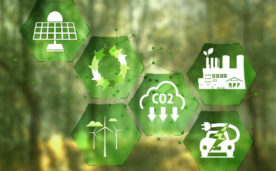
CO2 capture and recovery
By capturing CO2 and converting it into a new feedstock we can find a new source of clean carbon, from which to manufacture value-added products and zero-emission fuels.
-
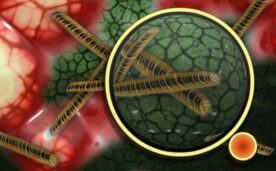
Technology for the detection of resistant bacteria
In addition to working on the development of new drugs, scientists are investigating new technologies for the detection of resistant bacteria. Spotting threats early accelerates appropriate diagnosis and treatment.
-
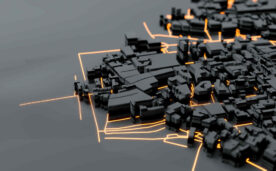
Intelligent mobility
The technological challenge of defining what the new architecture of environmentally sustainable economic growth will look like is completed by smart mobility. Its impact goes beyond the electrification and connectivity of vehicles with an increasing degree of autonomy, and the development of a whole industry of new services associated with it.
-
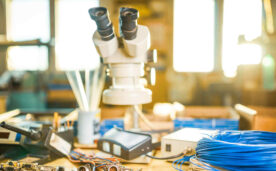
Critical elements
Raw materials are fundamental to economic development. But almost all of them have a problem: they are finite substances, and using them indiscriminately can lead to an unsustainable future. It is therefore important to develop new recycling and utilisation technologies, as well as to research substitutes based on more abundant materials that allow the same level of energy efficiency and...
-

Mathematics for a sustainable world
Mathematics is one of the fundamental tools for achieving sustainability. From developing new models to better understand migratory movements to creating better systems for resource management, mathematics pervades a myriad of aspects of reality; it contributes to economic growth by ensuring sustainable progress.
-

Metaverse
Beyond entertainment and video games, metaverse technologies will revolutionise the way we interact with each other and with computers, just as the internet revolutionised the digital age. The possibilities are endless.
-
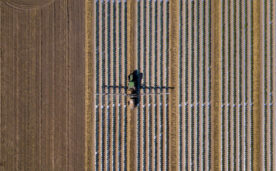
Smart fertilisers
Smart fertilisers encompass a range of technologies to reduce the environmental impact of our agriculture. Through systems that control the release of substances, we make the best use of resources and, at the same time, minimise pollution of both food and ecosystems. Of course, all of these improvements always maintain the productivity of our crops....
-
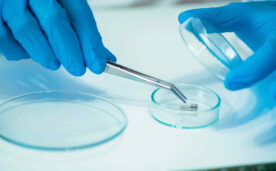
Teragnostic materials
Theragnostics is no longer a futuristic technology, it is the present. As medical specialists explain, it is a technology that offers precision and personalised molecular radiotherapy. It is not killing flies with cannons, but attacking the tumour cell directly, putting radiation into it and destroying it without affecting healthy tissues and with hardly any side effects.
-
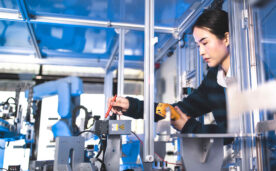
The world of robots
Robots will not replace humans, they are autonomous, but never self-sufficient. What they do avoid are tedious and dangerous jobs and tasks, to increase job security and free our creativity.
-
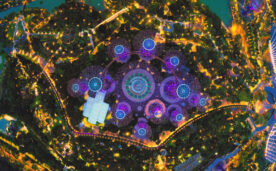
The tourism of things
Thanks to advances such as virtual reality, augmented reality and the internet of things, we will soon be experiencing travel and getaways in a completely different way. These technologies, in addition to increasing the possibilities for remote enjoyment, also open new doors to more interactive, personalised and augmented content, through the use of the internet....


